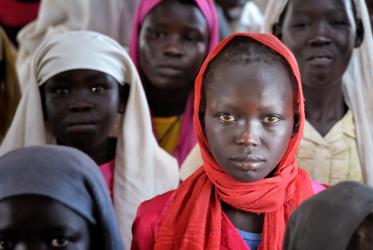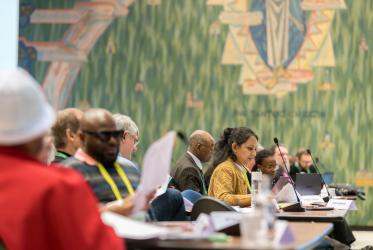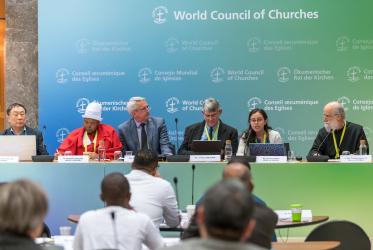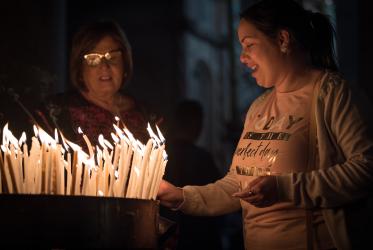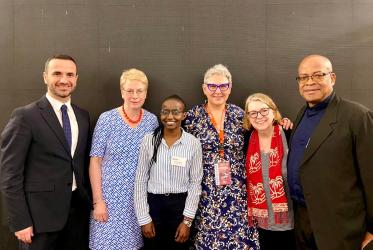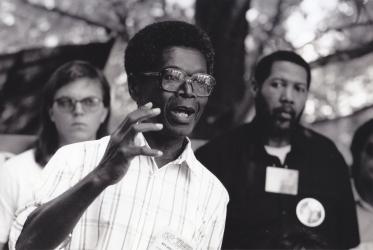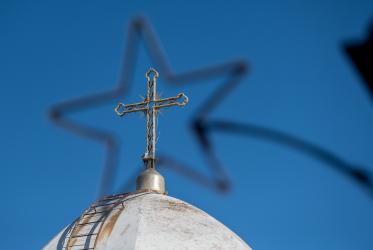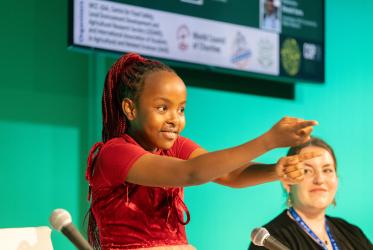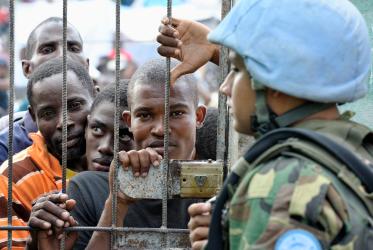Displaying 1 - 20 of 1003
Join in World Day of Prayer prepared by Palestinian women
29 February 2024
WCC Commission on Faith and Order elects new leaders
08 February 2024
Messages of hope amid strife ring for New Year
11 January 2024
WCC webinar explores decolonizing beauty
11 December 2023
Churches prepare report for Canada’s Universal Periodic Review
29 November 2023
